Escalations on Eastern Ukraine - Why is it happening?
- Igor Muzyka

- May 1, 2021
- 6 min read
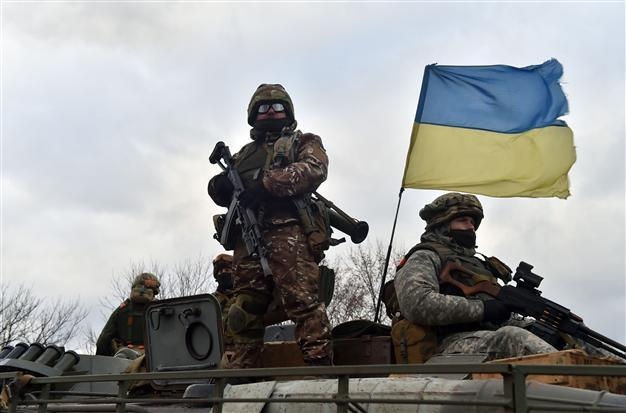
It was nine o’clock on a moody Friday night when I discovered my partner crying in the bedroom with her computer open. After expressing my concern, it turned out that she was crying over a new video that emerged of the current president of Ukraine expressing readiness to discuss the war on the eastern part of Ukraine with the leader of Russia, as well as readiness to wage war on said territory. You see, my partner comes from Kryviy Rih, the biggest Ukrainian non regional city found in the east. Famous for its industrial complexes and mining facilities, as well as being the hometown of our current president. It’s also just 5 hours away from the war torn Donetsk, that for the past 7 years has been going through a seemingly never ending war. The conflict itself started in March-April 2014 after the Russian annexation of Crimea was followed by pro-Russia separatists forces proclaiming their independence from Ukraine’s government, sparking a full fledged war with the insurgents promptly supported by Russia. It has been a major talking point both for the members of the Commonwealth of Independent States (CIS) and NATO. Russia's support of the eastern insurgents has been met with a plethora of sanctions, as well as making the previously warm bilateral relations between Russia and Ukraine hostile.
Recently, the conflict produced another controversy as a significant amount of Russian troops and armored vehicles have amassed around the eastern border and could be seen carrying a supposed “military training” in the annexed Crimea.
What now?
Current escalation seemingly came after Ukrainian president, Volodimir Zelensky, made a decision to impose sanctions on 19 of Ukrainian corporate entities and 8 individuals. The biggest effect of the aforementioned sanctions came with a ban of 3 pro-Russian TV stations.
The said stations are 112, ZIK and NewsOne, owned by Taras Kozak, a prominent member of the opposition Platform - For Life party, whose popularity has been growing in polls [1]. The channels are famous for their pro-Russian rhetoric as well as vast criticism of the current and previous Ukrainian governments. The viewership of these stations in the news-viewing segment is at 45% market share.
Taras is a close associate of Viktor Medvedchuk ( the alleged real owner of the tv channels), a Ukrainian politician and oligarch with family ties to both Vladimir Putin and Russia’s prime minister Dmitry Medvedev [2]. Medvedchuk himself was met with sanctions after he was found to be channelling profits from the Kremlin based proxy republics in eastern Ukraine using his transportation company.
Internal factors
The move came from the diminishing popularity of the President as his party “The Servant of the People”. The party has been steadily losing their popularity after coming to power, comparative to its two main rivals: The pro-Russian Opposition party- for Life and the anti-Russian party European Solidarity led by Zelensky’s main political rival - former president Petro Poroshenko [3].
The decision to sanction the TV channels is in line with Zelensky positioning himself as a more aggressive entity towards Russia in comparison to his predecessor. Poroshenko, is an oligarch who was rumored to be ‘in bed’ with Medvedchuk due to his inactivity and excuses, when asked about challenging the pro-Russian politician. This move may indeed be a much-needed boost for the Ukrainian leader in order to achieve trust among his people and attract the anti-Russian supporters of Poroshenko to his side.
On the other hand it may also be a detriment to Zelensky as it could bolster the message of Poroshenko’s party. The channels owned by the former president are critical of the current president’s government and could potentially use the ban of 112, ZiK and NewsOne as a platform to criticise Zelensky and his party for increasing censorship and dictatorial tendencies. Only time will tell how this move will play out for Zelensky and the elections that await him in 2024.
External factors
Externally the sanctions seem to be a powerful appeal towards the Ukrainian Western allies, especially those critical of the Kremlin’s recent actions such as the poisoning of Alexei Navalny. There has been no judgement towards the Ukrainian actions from the international arena, with the US even praising sanctions towards Medvedchuk, who has been on their sanctions list since 2014.
What's more important is that the ban significantly lowered Russia's influence on the Ukrainian public and seemingly influenced Russia to put an estimated amount of 40,000 troops towards the Ukrainian border, as well as another 40,000 troops in annexed Crimea in a move that can only be described as a showcase of power. Russian leaders have blamed their decisions on Kiev using “provocative actions''.
Ukraine responded to these statements with the already mentioned statement from President Zelensky, prompting tensions and speculations about a full fledged war between Ukraine and Russia. Since then, the troops have been removed, de-escalating the conflict significantly and even sparking some praise from Ukrainian leaders.
A full-fledged conflict was never really on the line, if not, the somewhat bold Ukrainian response could only be treated as a suicide letter and not a way for Zelensky to bolster his appeal to the anti-Russian crowd. The Russian military dwarfs the Ukrainian both in numbers and budget, without counting its nuclear capacity.
So, if conflict is not the real issue the question is...
What's in it for Russia?
Putin is infamous for using various political situations in order to take the eyes off of his own actions. Most notably his usage of 2018 FIFA World Cup in order to implement a highly heated pension reform during the summer of 2018 [4]. Nowadays Putin is facing numerous issues that may explain his actions on the border. Perhaps most obvious is the case of Alexei Navalny, a prominent Russian opposition member whose controversial imprisonment earlier this year has amalgamated in a lot of public as well as international attention. Navalny at the time was doing a hunger strike due to having no attention from governments medics to his declining physical health. The conflict is a perfect opportunity to reduce the public's attention towards the poor treatment of the opposition's leader. What is more, the move may have proven to be a success since Navalny stopped his strike just around the time Russia withdrew their troops from the border. However it should be noted that whether Russia’s actions influence the internal political sphere is pure speculation.
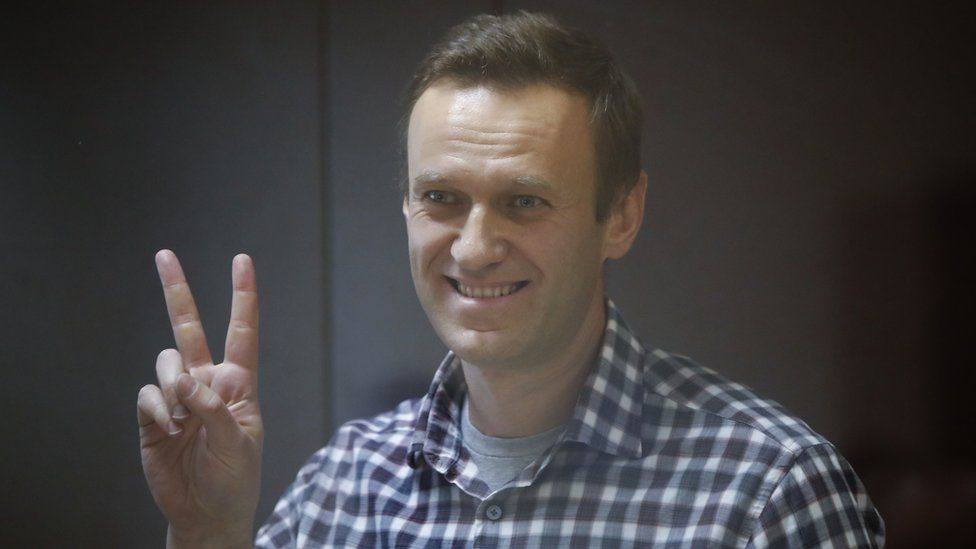
Moreover Putin seems to be interested in showing the sheer amount of power and influence he has, most notably to NATO and the United States. After the withdrawal of troops from the border, in his latest message on the annual state of the nation address, he said "The organisers of any provocations against Russia will regret [their actions] in a way they never have before" [5].
Mr. Putin may well be testing America's newly elected president Joe Biden, who has shown to take a much harsher stand towards Russia than his predecessor Donald Trump did. Various sanctions from the United States have been implemented on Russia such as the Chemical and Biological Weapons Control and Warfare Elimination Act (CBW Act), Treasury’s Office of Foreign Assets Control (OFAC) Sanctions and various export restrictions [6]. But, perhaps the most infamous was the case of Joe Biden openly calling Vladimir Putin “a killer” during his interview on March 17.
A former US ambassador of NATO, Ivo Daalder, has claimed that Biden tasked US intelligence with the assessment of four of Russia's most egregious allegations: The poisoning of Navalny, the interference in the 2020 election, The Solar Winds hack of cyber networks and paying bounties for the US troops in Afghanistan. [7]
Actions like this may have sparked a sharp reaction from Russia, that facilitated itself in the blatant demonstration of power that we have seen and speculated about in April.
In conclusion...
The stagnant war that is currently being waged on the east of Ukraine has proven to be a powerful tool capable of boosting someone's political status, being abused as a showcase of military strength and used as a bargaining chip between two major powers. It’s a primary showcase of the kind of hybrid war that is being led today. It's sad then, that behind the hybrid war lies a real armed conflict that has taken real lives. There were numerous ceasefire agreements, last of which took effect on July 22, 2020. We saw 26 Ukrainian soldiers killed in the first 3 months of 2021 [8]. And the overall death toll of the conflict lies at around 13,000 people [9].
It would be an act of utmost cynicism to dedicate this cold opinion piece to any of them. Therefore I would like to dedicate it to my partner. A person simply worried for their parents, for whom one evening the political theatre became way too real.
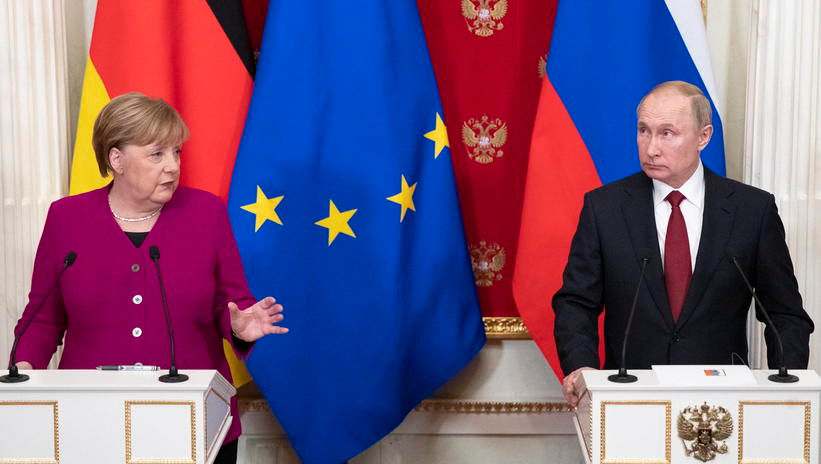
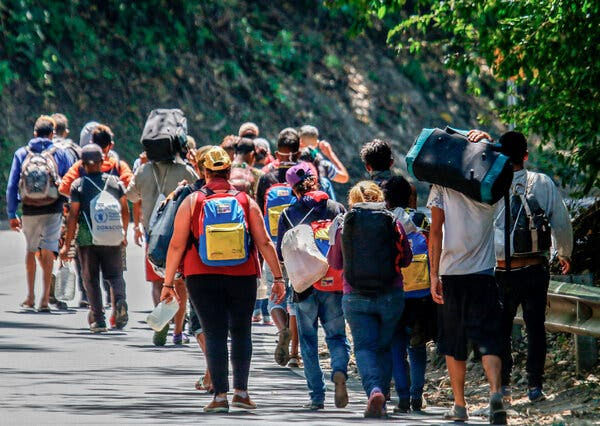
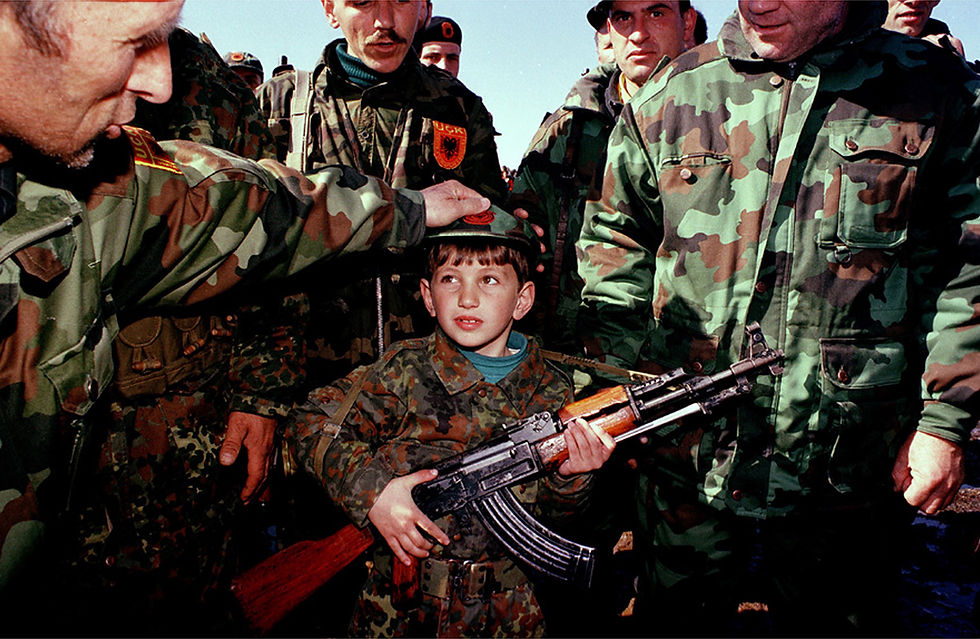
great article